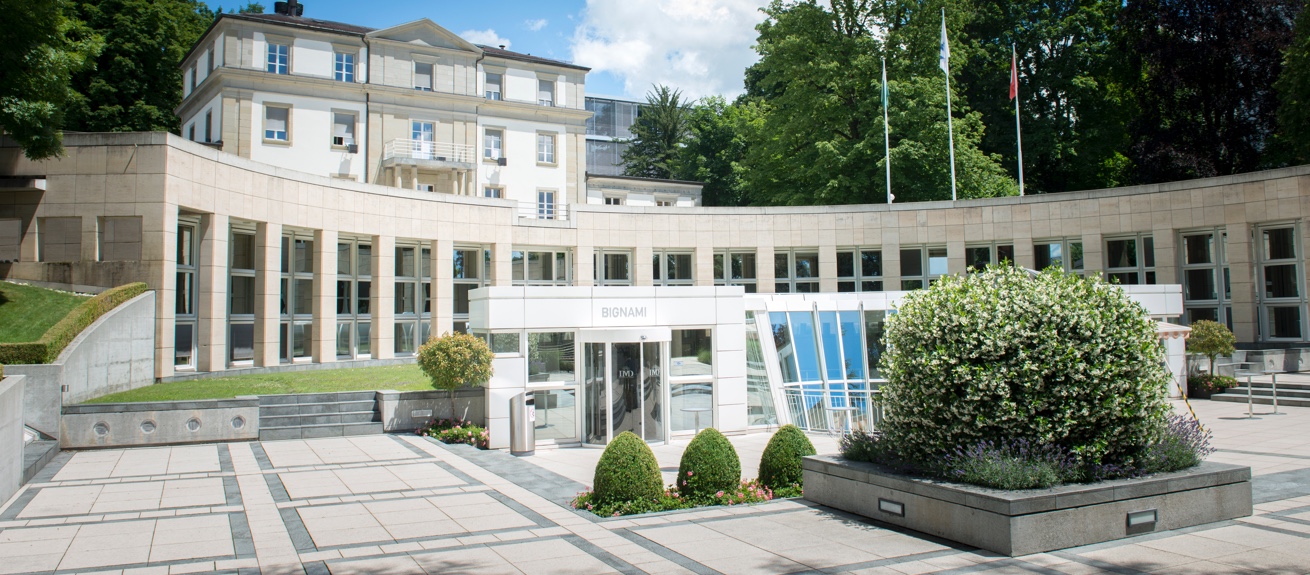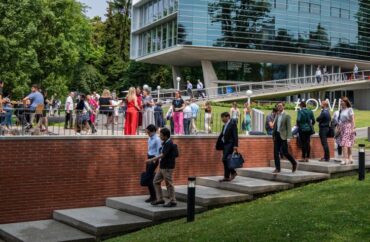
The Global Network for Advanced Management, an association of international business schools of which IMD is a member, has released a joint statement signed by the network’s Presidents, Deans and Directors that reaffirms its commitment to collaborative learning across countries and cultures in these times of upsurging populism, economic nationalism, and anti-globalization rhetoric. The letter also demonstrates how business education makes a positive impact on society, and contributes to a better world.
Read the full letter below:
The Global Network for Advanced Management, a network of 29 leading international business schools dedicated to driving innovation and creating value through exchange and engagement, will celebrate its fifth anniversary in April. Today, the principles on which the network was founded are more important than ever.
The world is currently experiencing an upsurge in populism, economic nationalism, and anti-globalization rhetoric. Despite such sentiment, we recognize that the global economy is more interconnected than ever before. Business operations are increasingly global, with ideas, products, capital, and teams moving across borders. At the same time, big challenges — from climate change to financial stability and the fight against debilitating diseases — are global in nature and cannot be addressed without the private sector. Business cannot deliver for all its stakeholders if borders are closed or certain groups are prevented from crossing them because of their country of origin or religious beliefs. Ongoing global engagement and exchange are paramount.
Today, Global Network member schools join in a commitment to:
- understand the manifest challenges that market economies face given the changes in political sentiment;
- deliver on our responsibility to develop principled leaders who create value and access to opportunities;
- support the rights of our students, faculty, alumni, and knowledge partners to freely engage in our programs and work; and
- advocate for the positive impacts that global exchange, in education and in business, have on society.
The power of the Global Network lies in its ability to harness diverse insights to address important global issues. The Global Network connects students, faculty, and alumni from around the world, allowing them to increase their effectiveness by understanding differences and commonalities in their economies and societies.
In its brief history, more than 5,000 master-level students and faculty have participated in Global Network courses, exchanges, and cross-school virtual team projects. The network has conducted global inquiries into major issues including sustainability and the obstacles facing women in management roles. Faculty have collaborated on international entrepreneurship, urban resilience, and social enterprise. Member schools have co-authored case studies on palm oil in Indonesia, banking in Ireland, manufacturing in China, agriculture in Mexico, and impact consulting in Ghana. We do this because of our unwavering commitment to developing leaders who can work successfully across boundaries, who are prepared to address pressing global issues, and who can perform at the highest levels in diverse and complex contexts.
As deans of Global Network member schools, we recognize that the fundamental drivers of global business are not changing. Technology will continue to advance and disrupt markets and societies, and the transfer of innovations and expertise across borders will continue. We believe that countries that retrench will harm themselves and their citizens. Therefore, we redouble our commitment to collaborative learning across countries and cultures, and to gain and leverage the insights of the best and brightest throughout the world. In this way, we continue to improve educational outcomes and professional development of our students, deliver innovations that benefit business and society, and contribute to a better world.
Jean-François Manzoni, President, IMD (Switzerland, Singapore)
Jikyeong Kang, President and Dean, Asian Institute of Management (The Philippines)
Juan Pablo Murra Lascurain, Acting Dean, EGADE Business School, Tecnológico de Monterrey (Mexico)
Jörg Rocholl, President, ESMT Berlin (Germany)
Luiz Artur Ledur Brito, Dean, FGV Escola de Administração de Empresas de São Paulo (Brazil)
Xiongwen Lu, Dean, School of Management, Fudan University (China)
Richard K. Lyons, Dean, Haas School of Business, University of California Berkeley (USA)
Peter Todd, Dean, HEC Paris (France)
Kazuo Ichijo, Dean, Hitotsubashi University, Graduate School of International Corporate Strategy (Japan)
Kar Yan Tam, Dean, Hong Kong University of Science and Technology Business School (China)
Martin Boehm, Dean, IE Business School (Spain)
Enrique Bolaños, President, INCAE Business School (Costa Rica, Nicaragua)
Ilian Mihov, Dean, INSEAD (France, Singapore, Abu Dhabi)
Nida Bektaş, Executive Director, Koç University Graduate School of Business (Turkey)
Enase Okonedo, Dean, Lagos Business School, Pan-Atlantic University (Nigeria)
Naufel Vilcassim, Head of Department, London School of Economics and Political Science, Department of Management (United Kingdom)
Bernard Yeung, Dean, National University of Singapore Business School (Singapore)
José Miguel Sánchez Callejas, Dean, Pontificia Universidad Católica de Chile School of Business (Chile)
Jiye Mao, Dean, Renmin University of China School of Business (China)
Peter Tufano, Dean, Saïd Business School, University of Oxford (United Kingdom)
Robert Helsley, Dean, Sauder School of Business, University of British Columbia (Canada)
Choelsoon Park, Dean, Seoul National University Business School (South Korea)
Miriam Erez, Vice-Dean, Technion-Israel Institute of Technology (Israel)
Ciarán Ó hÓgartaigh, Dean, UCD Michael Smurfit Graduate Business School (Ireland)
Ari Kuncoro, Dean, Universitas Indonesia, Faculty of Economics (Indonesia)
Mills Soko, Director, University of Cape Town Graduate School of Business (South Africa)
Joshua Yindenaba Abor, Dean, University of Ghana Business School (Ghana)
Edward A. Snyder, Dean, Yale School of Management (USA)


